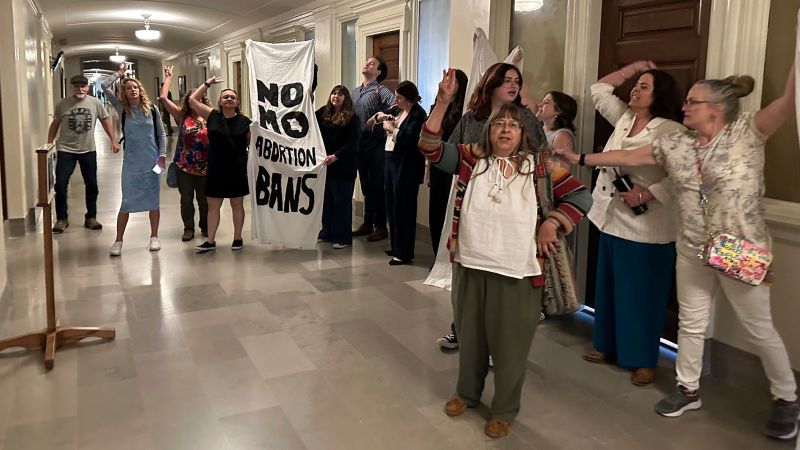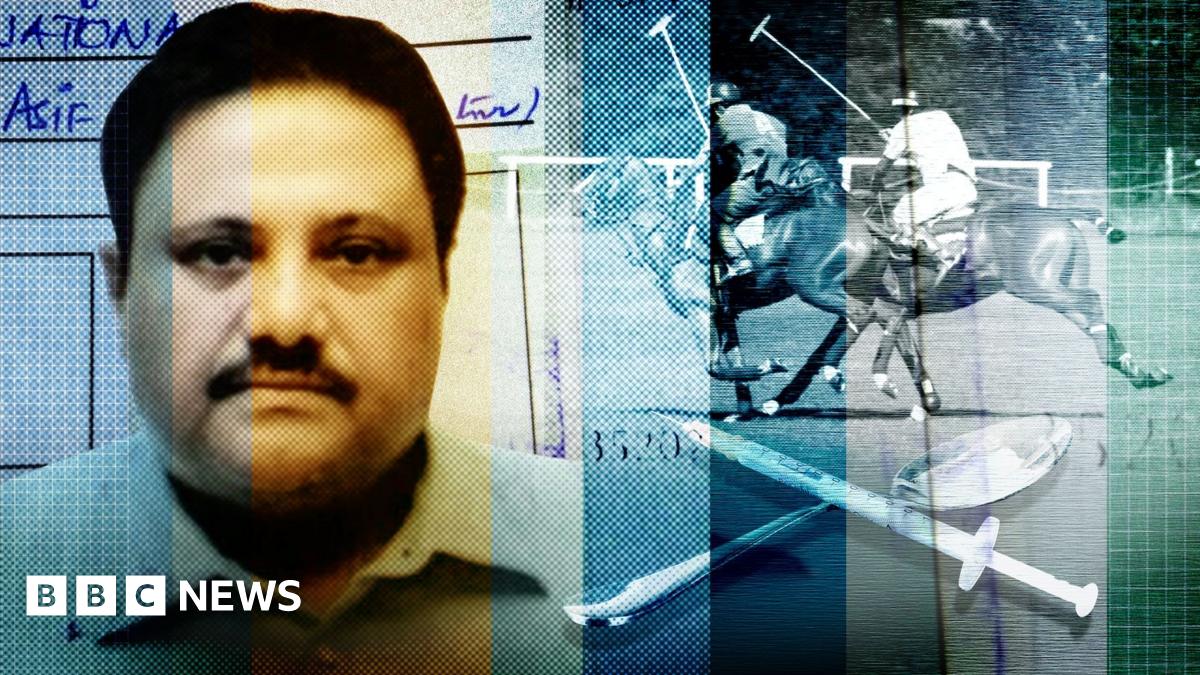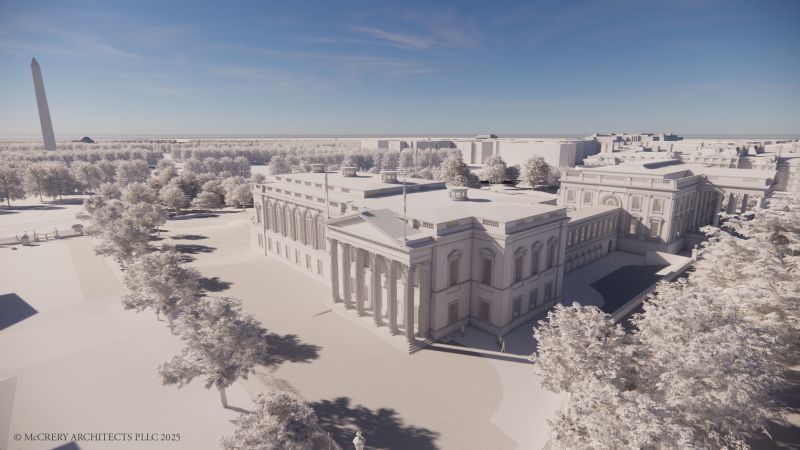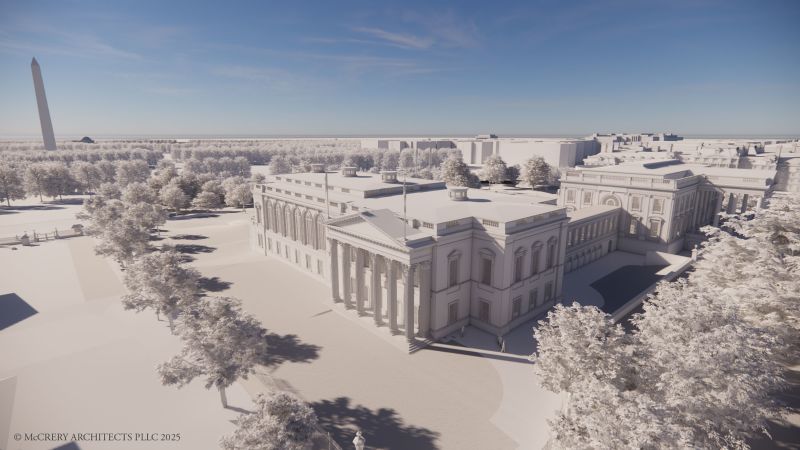Curbing Citizen Power: How Republican States Are Restricting Ballot Access

Welcome to your ultimate source for breaking news, trending updates, and in-depth stories from around the world. Whether it's politics, technology, entertainment, sports, or lifestyle, we bring you real-time updates that keep you informed and ahead of the curve.
Our team works tirelessly to ensure you never miss a moment. From the latest developments in global events to the most talked-about topics on social media, our news platform is designed to deliver accurate and timely information, all in one place.
Stay in the know and join thousands of readers who trust us for reliable, up-to-date content. Explore our expertly curated articles and dive deeper into the stories that matter to you. Visit Best Website now and be part of the conversation. Don't miss out on the headlines that shape our world!
Table of Contents
Curbing Citizen Power: How Republican States are Restricting Ballot Access
The fight over voting rights in the United States is intensifying, with Republican-led states enacting a wave of restrictive laws that critics say disproportionately impact minority voters and suppress participation. This surge in legislation follows the highly contested 2020 presidential election, raising concerns about the future of democratic participation. This article delves into the specifics of these restrictions and their potential consequences.
A Wave of Restrictive Legislation:
Since the 2020 election, numerous Republican-controlled states have passed laws making it harder for citizens to vote. These measures, often justified under the guise of combating voter fraud (despite a lack of widespread evidence of significant fraud), significantly impact ballot access for many Americans. These restrictions include:
-
Stricter Voter ID Laws: Many states are tightening their voter ID requirements, demanding specific forms of photo identification that many citizens, particularly the elderly, low-income individuals, and minorities, may not possess. This creates an unnecessary barrier to exercising the fundamental right to vote.
-
Reduced Early Voting Periods: Several states have shortened early voting periods, limiting the opportunity for individuals with busy schedules or limited mobility to cast their ballots. This disproportionately affects those who may rely on early voting, such as working parents and individuals with disabilities.
-
Elimination of Same-Day Voter Registration: The elimination of same-day voter registration makes it more difficult for eligible citizens to register and vote, particularly those who recently moved or were previously unaware of registration deadlines. This impacts younger voters and those new to the area.
-
Curtailment of Absentee Voting: Restrictions on absentee voting, including stricter requirements for requesting absentee ballots and limitations on who can assist voters with absentee ballots, further limit access for those who cannot easily vote in person.
-
Increased Scrutiny of Voter Rolls: Many states are implementing more rigorous processes for reviewing voter registration rolls, leading to potential disenfranchisement of eligible voters due to administrative errors or outdated information.
The Impact on Minority Voters:
Critics argue that these restrictive voting laws disproportionately affect minority voters, who often face greater barriers to accessing the necessary identification, navigating complex registration processes, and overcoming logistical challenges associated with voting. This raises serious concerns about the fairness and integrity of the electoral process. Organizations like the NAACP Legal Defense and Educational Fund are actively challenging these laws in court.
The Argument from Republican States:
Supporters of these laws contend that they are necessary to prevent voter fraud and ensure the integrity of elections. However, conducted by non-partisan organizations consistently demonstrate that voter fraud is exceedingly rare. The Brennan Center for Justice, for example, has published extensive research debunking claims of widespread voter fraud.
The Broader Implications:
The ongoing efforts to restrict ballot access represent a significant threat to democratic participation. These measures undermine the fundamental right to vote and raise concerns about the fairness and equity of the electoral system. The long-term consequences could lead to decreased voter turnout, reduced representation of minority communities, and a weakening of democratic institutions.
Moving Forward:
The fight for voting rights continues. Civil rights organizations are working tirelessly to challenge these restrictive laws and advocate for policies that expand access to the ballot box for all eligible citizens. Staying informed about these developments and engaging in civic participation are crucial steps in safeguarding the future of democracy. Learn more about voting rights in your state by visiting .

Thank you for visiting our website, your trusted source for the latest updates and in-depth coverage on Curbing Citizen Power: How Republican States Are Restricting Ballot Access. We're committed to keeping you informed with timely and accurate information to meet your curiosity and needs.
If you have any questions, suggestions, or feedback, we'd love to hear from you. Your insights are valuable to us and help us improve to serve you better. Feel free to reach out through our contact page.
Don't forget to bookmark our website and check back regularly for the latest headlines and trending topics. See you next time, and thank you for being part of our growing community!
Featured Posts
-
 From Upscale Polo Matches To Underground Drug Trade The Shocking Truth
Jun 09, 2025
From Upscale Polo Matches To Underground Drug Trade The Shocking Truth
Jun 09, 2025 -
 Chancellors Spending Review A Deeper Dive Into The Figures
Jun 09, 2025
Chancellors Spending Review A Deeper Dive Into The Figures
Jun 09, 2025 -
 New Lung Transplant Program At Vcu Healths Hume Lee Center Achieves Milestone
Jun 09, 2025
New Lung Transplant Program At Vcu Healths Hume Lee Center Achieves Milestone
Jun 09, 2025 -
 Catching Up The Latest On Sean Diddy Combs Legal Case
Jun 09, 2025
Catching Up The Latest On Sean Diddy Combs Legal Case
Jun 09, 2025 -
 Queens Club 2025 Vekic Zakharova First Round Prediction And Analysis
Jun 09, 2025
Queens Club 2025 Vekic Zakharova First Round Prediction And Analysis
Jun 09, 2025
Latest Posts
-
 September Start Date Announced For Trumps 200 Million White House Ballroom
Aug 03, 2025
September Start Date Announced For Trumps 200 Million White House Ballroom
Aug 03, 2025 -
 Pattinson Out James Gunn Clarifies Dcu Batman Casting Speculation
Aug 03, 2025
Pattinson Out James Gunn Clarifies Dcu Batman Casting Speculation
Aug 03, 2025 -
 Norris Fastest In Hungarian Gp Practice A Strong Start For Mc Laren
Aug 03, 2025
Norris Fastest In Hungarian Gp Practice A Strong Start For Mc Laren
Aug 03, 2025 -
 White House Ballroom Renovation 200 Million Project Begins This September
Aug 03, 2025
White House Ballroom Renovation 200 Million Project Begins This September
Aug 03, 2025 -
 X Qc Vs Kai Cenat Who Reigns Supreme In Streaming Net Worth
Aug 03, 2025
X Qc Vs Kai Cenat Who Reigns Supreme In Streaming Net Worth
Aug 03, 2025
